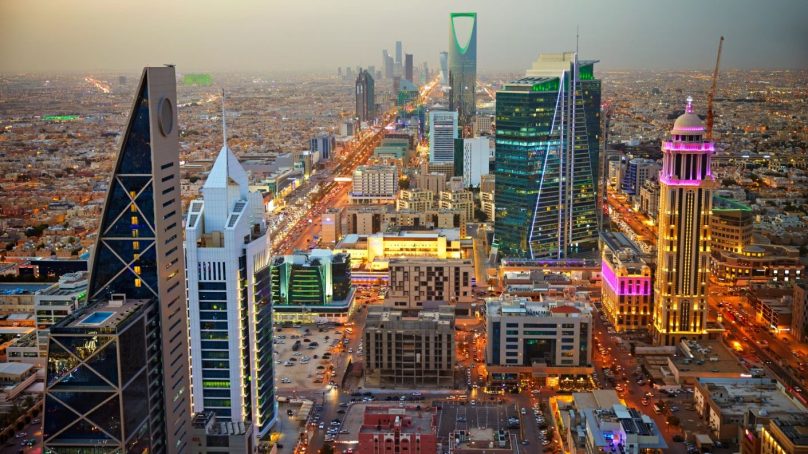The ambitious goals outlined in Saudi Arabia’s Vision 2030 strategy are supported by more than USD 1 trillion worth of real estate and infrastructural developments, including 315,000 hotel keys. In the next four to five years, the number of hotel keys is likely to almost double to around 200,000, with at least half of the proposed supply becoming operational by 2028 and some existing properties leaving the market to make room for new, more desirable and competitive hotels and resorts.
According to Knight Frank, KSA is set to take its place on the world stage and showcase its vision of an ultra-modern future to a global audience, with a diverse array of giga and mega projects that will transform the country’s real estate landscape and redefine tourism, living and lifestyle. Turab Saleem, head of tourism and hospitality at Knight Frank, commented: “The KSA government’s strategy includes attracting 100 million visitors by 2030, and that means creating and delivering first-class gateways and developments, such as the USD 500 billion NEOM. The USD 1 trillion projects represent just a third of the total spending plan, reinforcing the country’s aggressive blueprint to deliver world-class infrastructure, hospitality, tourism and residential facilities to meet the targets set out in Vision 2030. The outlook for hospitality investment in KSA looks promising, with hotel and tourism development quickly spreading quickly to parts of the country beyond the major cities of Riyadh and Jeddah. Our analysis shows that the delivery of all planned hotel rooms – which cover the luxury, mid-market and serviced apartment sectors – will cost around USD 110 billion. As we stand at the precipice of a sea change for Saudi Arabia’s hospitality landscape, we are moving from vision to reality. The herculean USD 110 billion task of transforming Saudi Arabia’s hospitality landscape goes well beyond the delivery of extra hotel room keys, and care and attention must be taken to launch the correct quantum of products in the right locations. Delivering as per the plan will create several opportunities and challenges; challenges that we believe can be overcome and turned into even more opportunities by forcing other sectors to develop in parallel and support KSA’s hospitality development strategy.”
Knight Frank’s data research on KSA hotels outside of the giga projects shows that there are currently 129,000 hotel and serviced apartment keys in the country. By 2030, that figure will have grown by more than 60 percent to 212,000 keys in five-, four- and three-star properties and below, as well as the serviced apartment sectors. Four-star properties account for almost half of the total development cost of USD 21.3 billion. Meanwhile, the kingdom’s giga projects represent nearly 73 percent of the hotel supply pipeline, with a 62 percent surge in the number of four- and five-star hotel rooms by the end of the decade.
Interestingly, Saudi Arabia’s tourism expansion is not limited to land-based destinations and attractions. The cruise industry, which is set to create up to 50,000 jobs in the country, is expected to bring in 1.5 million visitors annually within the next five years, according to the KSA Public Investment Fund.
According to HVS, the government continues to make significant strides in facilitating the growth of different sectors across the country, with notable investments in the hospitality and tourism space. Furthermore, HVS anticipates that franchises and lease agreements are set to become a new trend in the Saudi Arabian hospitality market. Hala Matar Choufany, HVS president of MEA and South Asia, said: “The surge in tourism and arrivals into KSA over the last 18 months alone – largely the result of legislation changes and visa facilitation – is a testament to the country’s growing allure. Interestingly, this uptick is not confined to established destinations and sectors such as commercial and religious tourism. ‘Bleisure’ and leisure tourism are equally on the rise, with secondary cities welcoming new visitors from far and wide. As the country continues to diversify its offering, the outlook looks positive; and, while it is early days in terms of planning and future investment, the hospitality market and investment opportunities are significant. Considering the size and scale of developments as well as the nature of ownership, it is evident that the Saudi market will benefit from multiple arrangements, such as franchises, as it relates to some of the established hotel owners, growth in local management companies and rise and growth of homegrown brands. We also foresee an increase in lease agreements as the markets become more mature and stable. While the traditional hotel operating model remains relevant, terms have become more competitive and operators’ ability to drive value is key to negotiations. To effectively invest in change, there needs to be a shift in mindset from offering not only a room but creating an overall, memorable experience. This means establishing a much deeper understanding of the type of guests and their needs, expectations, willingness to spend and other preferences, which will be key to the success of positioning an asset as a destination rather than merely a hotel. With rising competition and declining brand loyalty, the challenge to remain relevant has become more important than ever.”


















